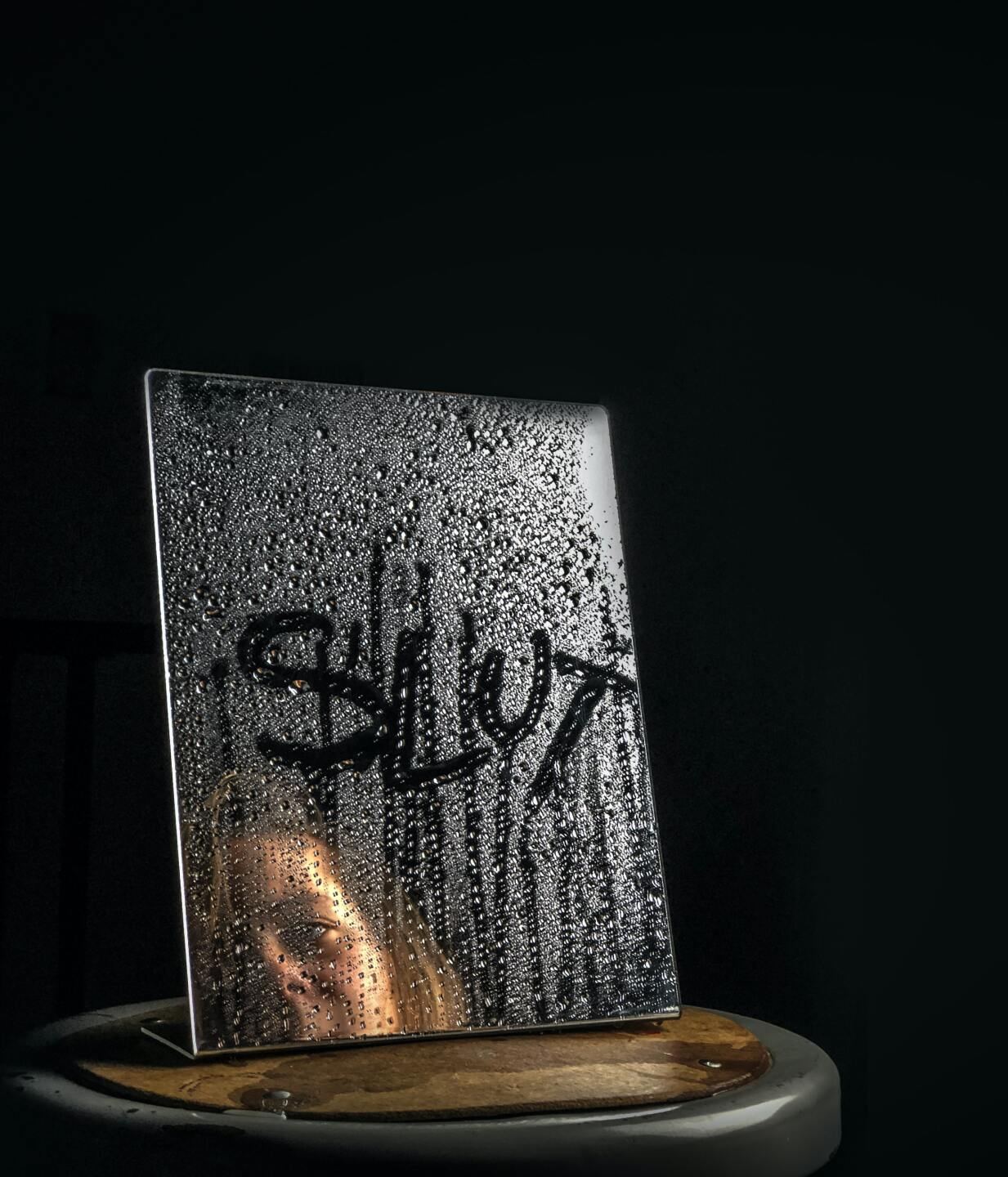THE LEORA LETTER
Boys will be boys…and girls will be sluts.
September 13, 2021

“Slut,” “hoe,” and “thot” are slippery and subjective terms
that can apply to any girl or woman, regardless of how they dress or behave. I shed light on slut-shaming—how and why assumptions about being “too” sexual are applied, the consequences for women, and the impact on everyone, regardless of gender.

“Slut” Among Friends: Q&A with Nicole Drakopoulos
This summer, rapper Megan Thee Stallion released a single, “Thot S***,” turning the language of slut-shaming on its head. (“Thot” is an acronym for “that hoe over there.”)
So is it okay to call a friend—or yourself—a “slut,” “hoe,” or “thot”? What if you make it clear that you’re just showing ownership over your sexuality and the right to call yourselves whatever you want? After all, “queer” has been reclaimed as a badge of honor, and in some contexts, so has “bitch.” So can “slut” and its synonyms be transformed positively in the same way?
I’m asked about reclamation of “slut” repeatedly, and I have shared my concern that this strategy can backfire. Besides, “slut,” “hoe,” and “thot” are not truly about sexuality anyway; these terms are used against girls and women even when sex has nothing to do with it.
But I’m always open to reconsider my conclusions, and I’m particularly curious to learn what people younger than I believe, since they are most ensnared by these labels.
I recently met a whip-smart graduate student, Nicole Drakopoulos, who shared with me that while she had called friends “sluts” when she was in middle and high school, she now has reversed course. Nicole is a 29-year-old master’s degree student in the liberal studies program at the CUNY Graduate Center, concentrating in gender, women, and sexuality. Born in Chicago and raised in Greece, she is also a writer and former literary magazine editor.
I spoke with her to learn what changed her thinking.

Nicole Drakopoulos
Leora Tanenbaum: Can words that have negative associations be reclaimed in a positive way?
Nicole Drakopoulos: I’ve been thinking a lot about reclamation of the word “c*nt.” And even now saying it here, I hesitated. It's like, we've been trained to think it's a dirty word.
Tanenbaum: Even taking notes now, while I listen to you, I'm like, should I actually write out the word “c*nt” on my notepad?
Draokopoulos: I started to wonder why this word holds so much discomfort, and what that discomfort says about my body and sexuality, so I started to think that I wanted to reclaim this word as a way to celebrate women’s bodies and sexuality.
But then, after I read your book, I started thinking about reclamation of the word “slut” and wondering if either word—“c*nt” or “slut” —were words we could ever really successfully reclaim. And the answer is: For “slut,” I no longer think so.
There's something powerful about taking language and using it as your own. But it’s also incredible how quickly and how powerfully language can be weaponized, how it can lead to microaggressions and really cause harm. This is especially apparent with the internet, where information not only travels incredibly fast but also becomes recorded in a very public and permanent way.
Tanenbaum: Tell me about the way you and your friends used “slut” when you were growing up.
Draokopoulos: I grew up in Athens. I went to an English-speaking high school and oh my god, we used to use the word “slut” among us so much. I think we wanted to be subversive and edgy. I have memories of using this language probably beginning at age 11. I recently came across a yearbook from when I was 13, and there was a comment written by a boy that said, “Nicole, you have really big boobs, and you’re a super slut.” And I’m pretty sure that at that time, my thought was: Haha, that's funny.
But now, the meaning has completely changed for me. Looking back, I think that maybe I didn't realize how hurtful that was at the time. That kind of interaction had been ingrained as normal and as okay.
And I was an early developer. I remember the day I got my period for the first time. I was 11 and sitting in history class. I bled through my skirt. I was mortified but also confused about what was happening to my body. Immediately, I was seen as different from the rest of the girls in the group. Boys began to snap my bra, really to draw attention to the fact that I had to wear one. The way I thought about my existence in the world suddenly changed.

Tanenbaum: Your body became public. Your classmates began to look at your body and comment on it. And when we label someone a “slut,” we are essentially doing the same thing with language.
Draokopoulos: Years later, I had an incident when I was breaking up with a guy. He didn’t want to break up, and he used very harsh language against me. In the Greek language there is the word “poutana,” which is a very ugly word meaning “whore.” There is also “kariola,” which is being a slut and a c*nt. Men use these words against women very frequently.
Tanenbaum: What would you say if today someone called you a slut?
Draokopoulos: Around seven years ago, I overheard my brother on the phone talking to one of his friends, and he made a comment about “Tinder sluts.” And I said to him later, “I was wondering how you would feel if one of your friends called me a ‘Tinder slut?’ Because to me, it's hurtful language.”
And we got into a big fight. He was like, “It’s just locker-room talk!” And I said, “What you say in the locker room matters. What you say to your friends behind closed doors matters.” And he said, “I was just kidding around. Why do you need to get so aggressive with me?”
And then I was with my brother a few weeks ago. And one of his friends said something dismissively about “sluts,” and he was like, “You know what, I just don't think we should be using that language. I just don't think we should be talking about women that way.”
Tanenbaum: Nicole, that’s so great – you got him to recognize the power of words! You changed his thinking.
Draokopoulos: Apparently, I did get through!

Key takeaway: Be cautious when considering using “slut” or its synonyms in a positive or friendly manner. These words can become weapons.
Share Your Story
Have you ever been called a “slut,” “hoe,” or “thot” by someone with positive intentions? How did this language make you feel? Email me at leora@leoratanenbaum.com and let me know if I may quote you—anonymously—in a future issue of this newsletter.
What Else Is Happening
Learn More
For information on slut-shaming, read I Am Not a Slut: Slut-Shaming in the Age of the Internet, and check out this list of examples in the news.
For information on dress-coding, visit @BeingDressCoded on Instagram.
Author photo: Jahsie Ault